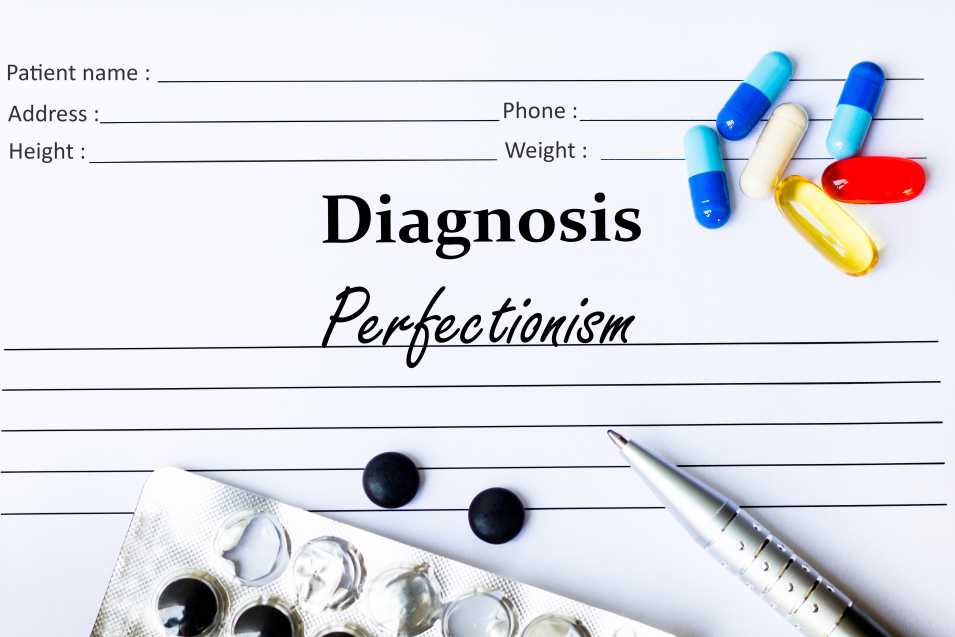Have you ever wondered about the connection between ADHD and perfectionism? Let’s dive into this intriguing topic and explore how these two seemingly different traits intersect.
On one hand, ADHD is often associated with impulsivity, lack of focus, and difficulty in maintaining attention. On the other hand, perfectionism is characterized by high standards, meticulousness, and intense self-criticism. At first glance, linking these two traits together may seem contradictory, but upon closer examination, we can uncover some interesting insights.
Individuals with ADHD often experience an incessant need for stimulation and novelty, which can lead to impulsive behavior. However, they may develop coping mechanisms to counteract their inherent challenges in their pursuit of perfection. This striving for perfection can be seen as an attempt to regain control and order in their lives.
Perfectionism in individuals with ADHD can manifest in different ways. They might become hyper-focused on specific tasks, spending excessive amounts of time on minute details. Alternatively, they may avoid starting projects altogether due to fear of failure or rejection. These tendencies can create a constant internal struggle, causing feelings of frustration and dissatisfaction.
It’s important to note that perfectionism when taken to extremes, can have detrimental effects on mental health and overall well-being. The pressure to meet unrealistic standards can lead to anxiety, depression, and burnout. Recognizing the fine line between striving for excellence and demanding perfection is crucial for finding balance.
So, how can individuals with ADHD and perfectionistic tendencies strike that delicate balance? Self-awareness and self-compassion are key. Understanding that nobody is perfect and that mistakes are part of the learning process can help alleviate the self-imposed pressure.
Developing effective strategies and seeking support can also make a significant difference. Breaking down tasks into smaller, manageable steps, setting realistic goals, and utilizing organizational tools can help individuals with ADHD channel their perfectionistic tendencies in a productive manner.
Symptoms of ADHD and Perfectionism
Are you someone who often finds yourself struggling with concentration, impulsivity, and a constant desire for perfection? If so, you might be experiencing symptoms of ADHD (Attention-Deficit/Hyperactivity Disorder) coupled with perfectionism. Let’s delve into the intriguing world of ADHD and how it intertwines with the pursuit of perfection.
ADHD, a neurodevelopmental disorder, affects both children and adults. It can manifest itself in various ways, including difficulty focusing, impulsivity, and hyperactivity. Individuals with ADHD often find it challenging to concentrate on tasks or activities, becoming easily distracted by their thoughts or external stimuli. They may also struggle with controlling impulsive behaviors, acting without considering the consequences.

Interestingly, individuals with ADHD often possess a keen eye for detail and an innate desire for perfection. However, this pursuit of perfection can become overwhelming and exacerbate their symptoms. The need to achieve flawless results can lead to procrastination, as they fear not meeting their lofty standards. This paradoxical relationship between ADHD and perfectionism can create a continuous cycle of frustration and self-doubt.
Imagine trying to complete a project while your mind races from one idea to another, constantly questioning whether each step is perfect. It’s like attempting to thread a needle during a turbulent storm. The relentless pursuit of perfection can hinder productivity and leave individuals feeling perpetually unsatisfied.
Moreover, the fear of making mistakes can paralyze individuals with ADHD and perfectionism. They may avoid taking risks or starting new projects altogether, fearing that imperfections will reflect negatively on their abilities. This fear limits personal growth and deprives them of valuable learning experiences.
So, how can individuals navigate the intricate dance between ADHD and perfectionism? Recognizing and accepting that perfection is unattainable is a crucial first step. Embracing progress over perfection allows for incremental improvements and reduces the overwhelming pressure to achieve flawlessness. Break tasks into smaller, manageable steps to enhance focus and decrease the tendency for distraction.
RELATED ARTİCLE: ADHD in Adulthood
Challenges Faced by Individuals with ADHD and Perfectionism
Living with ADHD and perfectionism can present unique challenges for individuals. The combination of these two traits can create a complex interplay that affects various aspects of one’s life. So, what are the challenges faced by individuals who grapple with ADHD and perfectionism? Let’s delve into the details.
First and foremost, time management becomes an uphill battle for individuals with ADHD and perfectionistic tendencies. ADHD often brings difficulties in focusing and prioritizing tasks, while perfectionism drives the desire to meticulously perfect every detail. This double whammy can lead to feeling overwhelmed and needing help to complete tasks within deadlines.
Furthermore, maintaining sustained attention proves to be a herculean task for those with ADHD and perfectionism. Perfectionists tend to get caught up in minute details, which can hinder their ability to stay focused on the bigger picture. Coupled with ADHD’s inherent distractibility, staying on track and avoiding distractions can feel like an endless struggle.
Organizational skills also take a hit when ADHD and perfectionism collide. The need for perfection may result in spending excessive time on individual tasks, leaving little energy or time for organizing and planning. Consequently, important documents get misplaced, schedules become chaotic, and a sense of disarray ensues.
Social relationships can suffer as well. Individuals with ADHD and perfectionism may experience heightened self-criticism and fear of making mistakes, leading to anxiety in social settings. Maintaining connections with others can be challenging when the constant need for perfection creates self-imposed pressure and fear of judgment.
Lastly, the emotional toll should not be overlooked. Juggling the demands of ADHD and perfectionism can lead to increased stress, frustration, and a sense of never measuring up. This internal struggle can negatively impact self-esteem and contribute to feelings of inadequacy.
RELATED ARTİCLE: Object Permanence and ADHD
Strategies for Managing ADHD and Perfectionism
Are you struggling to manage both ADHD and perfectionism? Don’t worry, you’re not alone. Many individuals face the challenge of balancing these two aspects of their lives.
One important strategy is to prioritize and set realistic goals. Getting caught up in the desire for perfection is easy, but aiming for flawlessness can lead to frustration and disappointment. Instead, focus on setting achievable goals and breaking them down into smaller, more manageable tasks. This will boost your productivity and alleviate the pressure to be perfect.
Another helpful approach is to practice self-compassion. Understand that it’s okay to make mistakes and that nobody is perfect. Treat yourself with kindness and understanding when things don’t go as planned. Remember, progress is more important than perfection. By cultivating self-compassion, you can reduce stress and improve your overall well-being.
Creating structure and establishing routines can also greatly benefit individuals with ADHD and perfectionism. Set specific schedules for daily activities, work, and relaxation. Stick to a consistent routine as much as possible, as it helps minimize distractions and increases focus. Consider using visual aids or electronic reminders to stay organized and on track.
Furthermore, seeking support from others is crucial. Connect with a therapist or counselor who specializes in ADHD and perfectionism. They can provide valuable guidance, teach coping mechanisms, and offer a safe space to discuss your challenges. Joining support groups or online communities with individuals facing similar issues can also provide a sense of belonging and understanding. (Source)
Treatment Options for ADHD and Perfectionism
One effective treatment approach for ADHD and perfectionism is cognitive-behavioral therapy (CBT). CBT aims to identify negative thought patterns and behaviors associated with perfectionism and replace them with healthier alternatives. You can learn strategies to challenge unrealistic expectations, embrace imperfections, and develop a more flexible mindset through CBT.
Another valuable treatment option is medication. Stimulant medications like Ritalin or Adderall are commonly prescribed to manage ADHD symptoms such as inattentiveness and impulsivity. While these medications may not directly address perfectionism, they can help improve focus and concentration, making it easier to tackle tasks without getting overwhelmed by the need for perfection.
In addition to CBT and medication, lifestyle modifications can play a crucial role in managing ADHD and perfectionism. Regular exercise, sufficient sleep, and a healthy diet can contribute to overall well-being and reduce symptoms of both conditions. Moreover, finding stress-management techniques that work for you, such as mindfulness meditation or deep breathing exercises, can alleviate anxiety and enhance resilience in the face of perfectionistic tendencies.
Support groups and counseling can offer invaluable emotional support and guidance. Connecting with others who are going through similar challenges provides a sense of belonging and understanding. It allows you to share experiences, exchange coping strategies, and receive encouragement from individuals who genuinely comprehend the complexities of living with ADHD and perfectionism.
Remember, seeking professional help is crucial in developing an individualized treatment plan. A qualified healthcare provider, such as a psychiatrist or psychologist, can assess your specific needs and recommend the most appropriate interventions.

Coping with ADHD and Perfectionism in Daily Life
Living with ADHD can be incredibly demanding. The constant battle with attention deficits, impulsivity, and hyperactivity can make even the simplest tasks feel like insurmountable mountains. Moreover, it adds an extra layer of complexity when coupled with perfectionism. You may find yourself setting impossibly high standards, obsessing over minor details, and feeling overwhelmed by self-criticism.
So, how can you cope with this dual challenge? First and foremost, it’s essential to embrace self-compassion. Understand that you are human, and it’s okay to make mistakes. Be kind to yourself and practice forgiving your shortcomings. Remember, progress matters more than perfection.
Developing a structured routine is another key element in managing ADHD and perfectionism. Create a schedule that incorporates specific blocks of time for work, breaks, and relaxation. Breaking tasks into smaller, manageable chunks helps you stay focused and avoid becoming overwhelmed. Celebrate each small accomplishment along the way, as they contribute to your overall progress.
Additionally, finding support is crucial. Reach out to family, friends, or support groups who understand your struggles. Sharing your experiences with others who can relate provides a sense of validation and relief. Consider seeking professional help from therapists or ADHD coaches who specialize in cognitive-behavioral strategies.
Engaging in regular physical exercise is a potent tool for managing ADHD symptoms. Physical activity boosts dopamine and norepinephrine levels in the brain, improving focus and attention. Choose activities you enjoy, such as jogging, dancing, or yoga, and make them a consistent part of your routine.
RELATED ARTİCLE: 7 Types of ADHD in Adults
